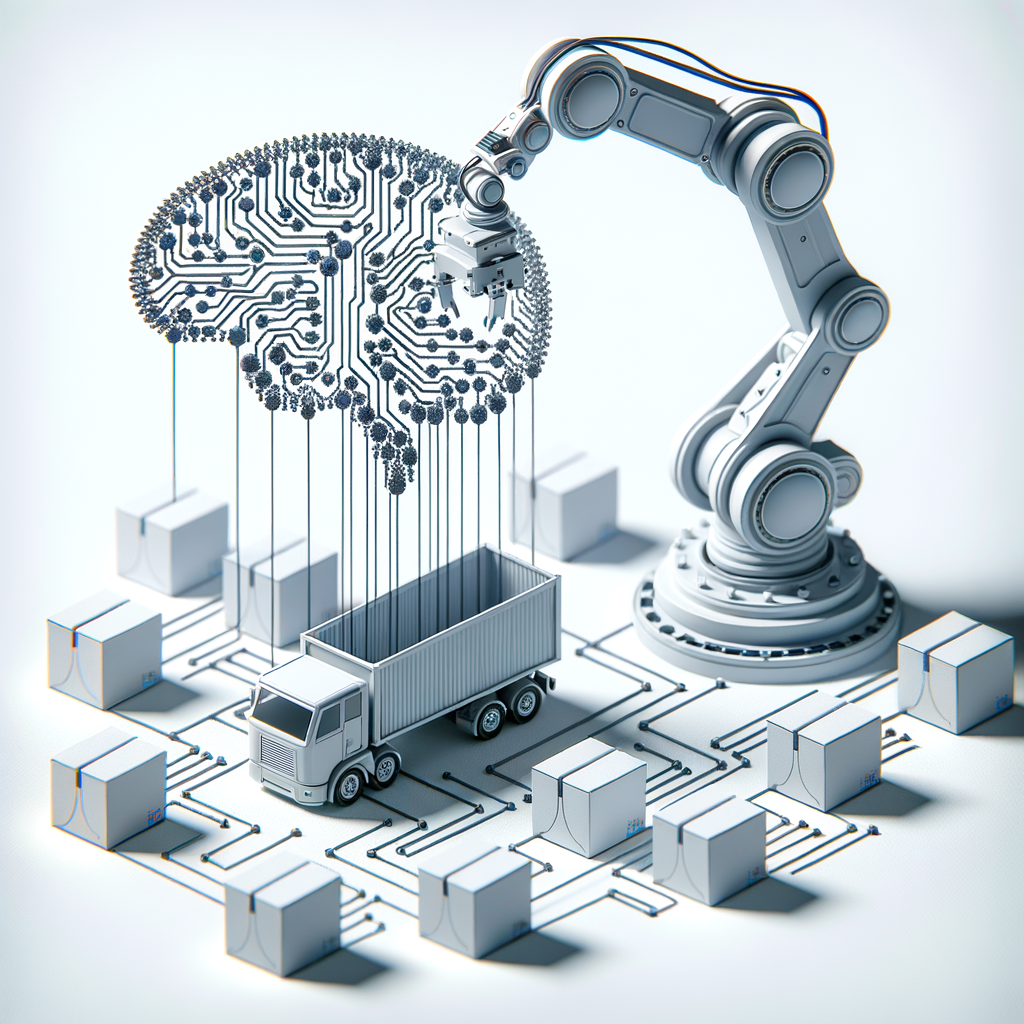
Harnessing AI to Revolutionize Supply Chain Management
Explore how AI is transforming supply chain management by enhancing efficiency, accuracy, and strategic planning. Discover the cutting-edge AI technologies that are optimizing logistics, reducing costs, and streamlining operations across global networks.
Harnessing AI to Revolutionize Supply Chain Management
In today’s fast-paced and globalized world, efficient supply chain management is crucial for businesses striving to maintain competitiveness and profitability. The advent of Artificial Intelligence (AI) has opened up new avenues for optimizing different facets of the supply chain, helping companies to predict trends better, optimize routes, manage inventories more accurately, and minimize costs. In this article, we will delve into how AI technologies are transforming supply chain management, discuss the benefits and challenges of implementing AI in this context, and explore the future potential of AI-driven supply chains.
Introduction to AI in Supply Chain Management
Artificial Intelligence encompasses a range of technologies, such as machine learning, natural language processing, and computer vision, that can simulate human intelligence processes. In the realm of supply chain management, AI can analyze vast amounts of data to derive actionable insights, automate processes, and enhance decision-making.
Application of AI in Supply Chain Management
1. Demand Forecasting
AI algorithms can analyze historical data, identify patterns, and predict future demand with higher accuracy than traditional methods. This leads to more efficient inventory management, reduced surplus, and minimized stockouts.
2. Supplier Relationship Management
AI tools can evaluate supplier performance, manage risks, and enable companies to make informed procurement decisions. By analyzing supplier data from various sources, AI enhances negotiation leverage and ensures reliable supplier relationships.
3. Inventory Optimization
AI solutions enable dynamic inventory management by predicting optimal stock levels based on real-time data, market trends, and demand forecasts. This helps businesses minimize holding costs while ensuring product availability.
4. Route Optimization
Advanced AI-powered tools analyze traffic patterns, weather conditions, and other relevant data to determine the most efficient transportation routes. This optimizes delivery schedules and reduces transportation costs.
5. Quality Control
AI technologies such as computer vision can perform real-time quality inspections, ensuring that products meet quality standards without human intervention. This reduces error rates and enhances product reliability.
Benefits of AI in Supply Chain Management
- Enhanced Efficiency: AI automates routine tasks, freeing up human resources for strategic initiatives.
- Improved Accuracy: AI provides precise demand forecasts, minimizing errors in inventory predictions.
- Cost Reduction: Optimized routes and inventory levels translate into significant cost savings.
- Sustainability: AI aids in reducing waste and energy consumption, contributing to sustainable practices.
Challenges of AI Adoption in Supply Chain
While the benefits are substantial, there are several challenges associated with AI adoption in supply chain management:
- Data Integration: Combining data from diverse sources and ensuring accuracy is a major hurdle.
- Cost of Implementation: Initial investment in AI technologies can be prohibitive for some businesses.
- Skill Gap: There’s a shortage of skilled professionals capable of implementing and managing AI systems.
- Cybersecurity Risks: AI systems can be vulnerable to cyber threats, necessitating robust security measures.
Case Studies: Success Stories
- Amazon: The e-commerce giant utilizes AI for demand forecasting and inventory management, which has significantly enhanced its logistics and delivery operations.
- Walmart: Walmart employs AI to predict customer purchasing behavior, optimizing inventory levels across its global operations.
- Myntra: The fashion retailer uses AI to tailor product recommendations and streamline its supply chain for quicker delivery times.
The Future of AI in Supply Chain Management
The future holds exciting prospects for AI in supply chain management. With advances in predictive analytics, autonomous delivery systems, and IoT (Internet of Things) integration, AI promises to further enhance supply chain resilience and agility. Businesses that embrace these technologies will be better positioned to withstand disruptions and capitalize on new opportunities in an increasingly dynamic market.
Conclusion
AI is revolutionizing supply chain management by offering unprecedented efficiency, predictive accuracy, and cost-effectiveness. While challenges exist, the potential benefits far outweigh the hurdles, making AI an indispensable tool for modern supply chain operations. By leveraging AI, companies can turn their supply chains into a source of strategic advantage, paving the way for sustained growth and competitiveness in the age of digital transformation.